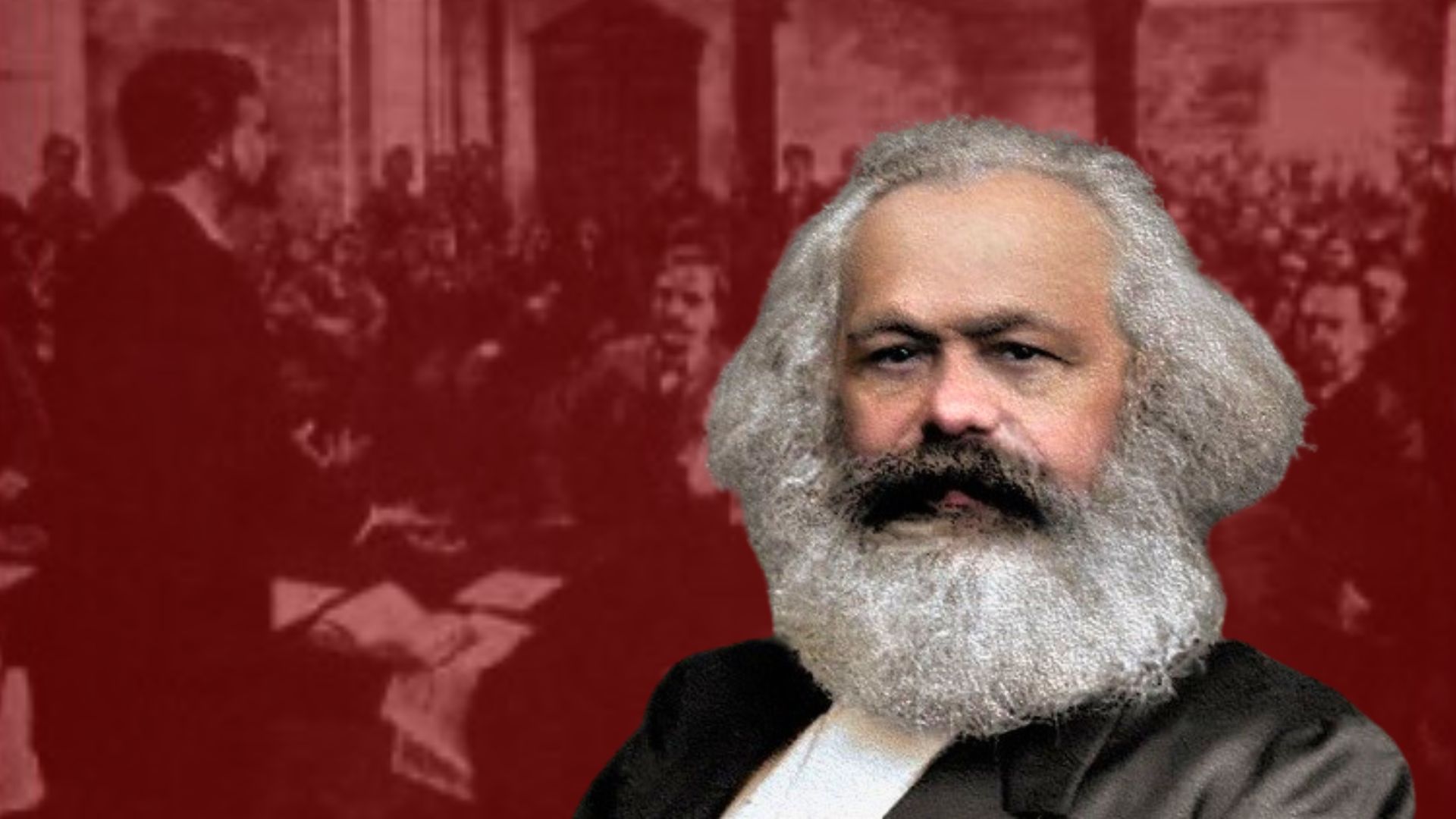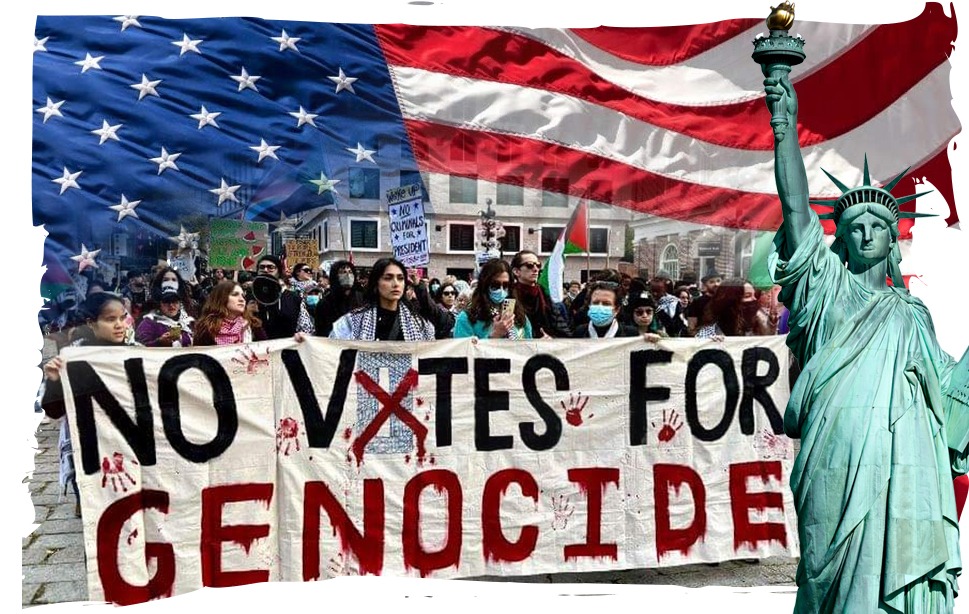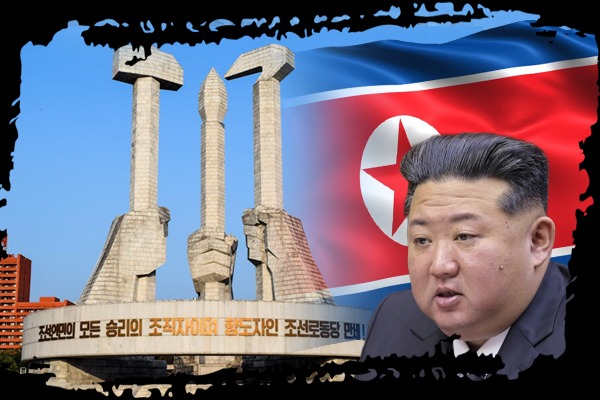During the spring of 1875, Karl Marx wrote one of his most significant political works: the Critique of the Gotha Programme. It was not merely a criticism of a nascent party platform but was a polemical intervention at a decisive moment in history. The German labor movement, having split since the 1860s, was working in earnest to reunify into one socialist party. The merging of the Eisenachers, those associated with Marx and Wilhelm Liebknecht, and the Lassalleans, those who were followers of Ferdinand Lassalle, would come to result in the formation of the Socialist Workers’ Party of Germany (SAPD) at the Gotha Congress of May 1875. But Marx had serious criticism of the draft programme upon which this unity was to be founded. His criticism was aimed at the Lassallean influence which had entered into the document—an influence which he saw as theoretically unsound and politically dangerous.
In order to understand Marx’s reply, one must deconstruct the ideological foundations laid down by Ferdinand Lassalle and how it impacted the development of the Gotha Programme. Lassalle, a great orator and the founder of the General German Workers’ Association (ADAV) in 1863, proposed a kind of socialism that was starkly different from Marx’s version of scientific socialism. Although both proposed the emancipation of the working class, their method and theoretical constructs were radically distinct.
Lassalle’s own socialism rested upon a deep faith in the potential of the state as an instrument for reform. He advocated the establishment of state-supported cooperatives and pushed the insistence on universal suffrage as the means whereby the working class could become politically powerful. Central to his theory was the idea referred to by the “iron law of wages,” that the wages of labor would spontaneously adjust to the subsistence level. Lassalle believed that only through state intervention could the proletariat break this straitjacket. His approach was therefore marked by a reformist, legal-political, and above all else, controversial attempt at cooperation with Bismarck’s autocratic state in the hope of securing potential concessions.
It is this particular orientation that insists on a state-focused and reformist strategy which Marx openly criticizes in his Critique of the Gotha Programme. In his letter to Wilhelm Bracke, in which he attached the critique, Marx is very much upset over the Eisenachers’ succumbing to Lassallean interpretations in the name of unity. He saw the resulting draft as a theoretical setback that compromised the revolutionary principles of communism.
The most famous passage in the Critique is Marx’s condemnation of the programme’s opening line: “Labor is the source of all wealth and all culture.” Marx responded with biting sarcasm: “Labor is not the source of all wealth. Nature is just as much the source of use values… as labor, which itself is only the manifestation of a force of nature.”
For Marx, abstraction of labor, free from the social relations within which it is situated, is a descent into a bourgeois theory of value. Lassalle’s inclination to think abstractly of labor, instead of recognizing it as socially mediated within the context of capitalist relations of production, is consistent with this.
Besides, Marx criticized the draft’s appeal to a “just distribution” of the results of labor. In his opinion, the employment of such expressions implied a bourgeois legal notion of equality and justice. In a class-divided society, the idea of a “just” distribution is bound to be ideological because the distribution is determined by the conditions of production. For Marx, the matter was not the distribution of the social product but the capitalist mode of production. He therefore famously said: “Any distribution whatever of the means of consumption is only a consequence of the distribution of the conditions of production themselves.”
Lassallean call for the “undiminished proceeds of labor” to be paid to workers brought serious displeasure from Marx. This view disregarded the fact of collective production and the necessary deductions for social reproduction—covering the upkeep of infrastructure, education, health, and means for those incapable of participating in work. This was an idealistic and petty-bourgeois dream that failed to fully appreciate the complexities of an organized, communist society.
Marx condemned the program’s ambiguous stance towards the state. Lassalle had claimed that workers need to fight for a “free state” in order to protect their rights and their cooperatives. But Marx saw that as an erroneous illusion about the class character of the state.
He wrote: “Freedom consists in converting the state from an organ superimposed upon society into one completely subordinate to it.”
For Marx, the concept of a “free state” is a contradiction in terms when used in relation to class rule. The state operated not as a neutral institution but as a tool for class rule. The proletariat’s work was not to transform the bourgeois state but to abolish it, then to create a transitional dictatorship of the proletariat—a mission Marx would later call the “revolutionary transformation of society.”.
At the deeper level, Marx criticism was not limited to erroneous formulations; it was also grounded in the necessity of programmatic clarity and working-class autonomy. Lassalle had announced a willingness to work with Bismarck and had even identified the Prussian crown as a potential ally in social reform. Marx considered this to be an example of class collaboration, through which the proletariat was threatened with being subordinated to the interests of the state apparatus. He feared that the mere consolidation of the workers’ movement under such ideological ambiguity would halt its revolutionary development.
It must be remembered that Marx did not on principle oppose the idea of unity. He did plead for the unity of the workers’ party; however, this must be under a program that represented the revolutionary ideology of the proletariat. A watered-down program on reformist and nationalist fantasies would lead to not emancipation but to betrayal. Therefore, the Critique was an appeal for theoretical correctness, insisting that unity must be based on revolutionary ideals and not on opportunist concessions.
Ironically enough, Marx’s Critique of the Gotha Programme itself never was published during his lifetime. It was circulated in private to his close circle of friends and was eventually published after his death by Engels in 1891, when controversy over the future direction of the German Social Democratic Party (SPD) was once more stirred. By this point, the SPD was the leading socialist party in Europe; but it was also becoming more parliamentary reformist—so justifying many of Marx’s worst fears.
In retrospect, the Critique of the Gotha Programme is a landmark in Marxist political practice. It underscores the absolutely indispensable function of theory in the building of proletarian parties and warns against the seductive trap of state-sanctioned reformism. While Lassalle’s influence was significant in mobilizing the early German working class, it eventually became a diversion from the revolutionary path. Marx’s intervention is a pertinent reminder that the substance of unity is as important as its form, and that any compromise with class enemies can never form the basis of genuine socialist politics.
In our modern context of coalition politics, left populism, and strategic inclination towards a “lesser-evil” strategy, Marx’s analysis of the Lassallean program remains valid. His binary option he formulated remains valid today: unity on the basis of revolution or unity through political compromise.
Gaining insights from Marx’s “Critique of the Gotha Programme”: A Framework for Revolutionary Tactics and Socialist Precision.
Karl Marx’s 1875 treatise, Critique of the Gotha Programme, is perhaps the most incisive and unyielding critique in the history of the socialist movement. Composed as a reaction to the draft unification program of two German workers’ parties—the Eisenachers (who were in agreement with Marx) and the Lassalleans (adherents of Ferdinand Lassalle)—this treatise was more than a commentary on abstract theory, serving instead as a robust defense of Marxist doctrine against ideological decay and opportunistic compromise. Far from being a piece of historical antiquity, the Critique contains insights relevant to any serious revolutionary mandate, particularly in a contemporary context where reformist philosophies and class cooperation again promise to substitute revolutionary clarity for vague ethical concerns.
The section breaks down principal themes according to Marx’s Critique of the Gotha Programme, foregrounding its pedagogical aspects with respect to: (1) the state, (2) the proletariat, (3) bourgeois and proletarian justice, (4) the critique of abstract slogans, (5) the theory of transition and stages of communism, and (6) the specter of opportunism and ideological compromise. Taken together, these themes underscore Marx’s insistence that proletarian political action needs to be firmly rooted in scientific exactitude, class independence, and uncompromising commitment to revolutionary transformation.
1. The Nature of the State: No ‘Free People’s State’
One of the central features of Marx’s criticism, often misunderstood, is his vitriolic dismissal of the Lassallean slogan “free people’s state.” The Gotha Programme had called for “a free state” as a way of creating social justice, an indication of Lassalle’s belief that the existing state could, through proper democratic change, be induced to serve the interests of the workers.
Marx, on the other hand, had an entirely different conceptualization of the state. In his view, the state can never be a neutral instrument; it is instead the “form in which the individuals of a ruling class assert their common interests.” The “free state” is a oxymoron.
As Marx famously wrote: “Freedom consists in converting the state from an organ standing above society into one completely subordinate to it.”
But for that to be possible, the bourgeois state has to be overthrown, not reformed.
This remains a crucial observation to this day. When social democrats and left liberals still insist on mobilizing the state for progressive goals, Marx’s warning is more relevant than ever: the capitalist state is not the instrument of emancipation—it is an organ of class domination. The working class cannot inherit the current state; it must smash it and substitute it with its own class power—what Marx and Engels called the “dictatorship of the proletariat.”
2. Class Independence and the Role of the Working Class
Marx emphasized the need for political independence of the working class in an absolute manner. The Gotha Programme obfuscated this demarcation by promoting a vision of national, “people’s” interest that the party allegedly would defend. Marx had a negative opinion about this interpretation, contending that the program failed to demarcate the working class from other segments of society, especially from petty bourgeois and reactionary forces.
He insisted that the proletariat can do no more than represent all “the people,” for society is split along class lines. The working class must organize as a class that is “separate from and antagonistic to” the bourgeoisie and its allies. For Marx, the Lassalleans’ attempt to conceal this division by appealing to a “general interest” was a class collaboration.
This pedagogical section is necessary in contemporary political debate, in which expressions like “99% vs. 1%,” the demagogy of populism, and large coalitions often cover up the real conflict between labor and capital. Marx teaches that a socialist movement can maintain its revolutionary character only by recognizing the particular historical role of the proletariat, as the class whose liberation requires the abolition of all social classes.
3. Bourgeois and Proletarian Concepts of Justice
Among the most popular slogans of the Gotha Programme was the call for the “fair distribution of the full proceeds of labor.” Although this slogan seemed progressive, Marx critically examined it as ideologically retrograde. In support of his argument, he argued that this call was limited within the scope of the bourgeois rights—placing emphasis on distributive justice and excluding the relations of production.
Marx contends that any conception of justice under capitalism must be “bourgeois justice,” i.e., justice in the interests of the class which owns and controls the means of production. Moreover, the conception of paying out the “full proceeds” of labor as labor implies an egalitarianism that must rest on the preservation of wage labor, value, and exchange relations—abstractions which must be overthrown under socialism.
Marx was adamant that distribution is always determined by the relations of production. Thus, the true task is not to redistribute the fruits of labor “equitably,” but to eliminate the value production system itself. In socialism, the aim is not equal pay, but the elimination of wage labor.
This is the criticism that reveals the moralistic tone of most reformist slogans, which mention “fair pay” or “redistributive justice” but not the exploitative system itself. The lesson of Marx is obvious: socialism is not a matter of bettering the terms of exploitation—it is a matter of ending exploitation.
4. A Discussion of Abstract Slogans
Marx disapproved of abstract and vague words intensely. The Gotha Programme is full of them—like “undivided proceeds of labor,” “free state,” “universal brotherhood,” etc.—which Marx considered meaningless or possibly misleading.
Clarity was not within the means of Marx—rather, it was the cost of revolutionary action. In abstractions, he perceived slogans as the return from science to utopia, from analysis to mystification. He said, “The less the content, the more the phrase is inflated.”
This line of argument remains profoundly pertinent to modern discussion, especially in a branding- and performative era of politics. Labels like “Build Back Better,” “Green New Deal,” or “Democratic Socialism” have a tendency to mask ideological confusion or strategic hesitation behind them. Marx is asking for a discourse based on class analysis, historical materialism, and political honesty. Without this kind of clarity, a revolution can be hijacked or disintegrate.
5. Phases of Communism: Lower and Higher Phases
A particularly useful aspect of the Critique is Marx’s brief but necessary analysis of the stages of communist development. He discerns an initial phase, a “lower phase” or socialism, in which some bourgeois features persist (e.g., an equal exchange for contribution of labor) and a later, higher phase of communism, in which society functions according to the principle: “from each according to his ability, to each according to his needs.”
This dialectical model describes that socialism is not a direct change but a process of history. The initial stage starts right after the elimination of capitalism, and although it represses the bourgeois class, it continues to have modes of distribution according to labor time and individual effort. Only after some time, through cooperative endeavors, technological advancements, and shifts in cultural paradigms, can society progress towards complete communism.
This is the central grasp of understanding in the struggle against both reformist illusions and ultra-left idealism. Marx establishes that socialism cannot be conceived as some romantic utopia or merely a series of reforms. It is a transitional social order, which arises out of class struggle, in which survivals of the past coexist with the new. A recognition of these contradictions is central to successfully navigating the complexities of revolutionary politics, without succumbing to defeatism or illusions.
6. Hazards of Opportunism and Ideological Compromises
One of the most important lessons derived from the Critique is that it cautions against political opportunism. While the unity of Eisenachers and Lassalleans looked like a great leap forward, Marx regarded it as a giant ideological step backward. He cautioned that unity to the extent of abandoning fundamental principles is a perilous pit to fall into.
Marx was not opposed to unity in itself. But unity has to be based upon the principles of revolutionary theory, independence of class, and consciousness of history—not on general slogans or momentary expediency. The readiness of the Eisenachers to combine with the Lassalleans resulted in a programme replete with theoretical muddle and political uncertainty. Marx was unwilling to sanction it.
In modern politics, this is seen among left parties that hide their identity in their quest for electoral support, enter into coalitions with capitalist forces, or embrace neoliberal discourse to provide a mask of “moderation.” This in turn results in the depoliticization of labor, demoralization of activists, and betrayal of socialist ideals.
Marx’s message is blunt but true: no political victory is worth sacrificing revolutionary vision. The workers must construct their own party on their own theory and for their own purposes. Compromise with the bourgeois regime means assimilation and defeat.
The influence of Marx’s criticism of the Gotha Programme on Lenin’s theoretical understanding of the Bolshevik Party is profound.
Ideological origins of the Bolshevik Party, founded under the direction of Vladimir Lenin, were firmly founded upon the revolutionary principles articulated by Karl Marx. Of Marx’s great body of seminal writings, the Critique of the Gotha Programme (1875) played a pivotal role in the development of Lenin’s conception of the party of revolution, the dictatorship of the proletariat, the state, and the path to communism.
Even though the Critique was originally written as a private letter to the German Social Democratic Workers’ Party (SDAP), its scathing criticism of reformism, shallow socialism, and political vacillation made it a valuable resource for future revolutionaries. Lenin did not just read it as a criticism of the draft program of a single party, but as a foundational Marxist text that delineated the tenets of proletarian revolution and demanded a clear, class-defined agenda.
This section is concerned with how Lenin used Marx’s Critique of the Gotha Programme in constructing the strategic and ideological course of the Bolshevik Party.
1. The State as a Class Instrument: Marx’s Legacy, Lenin’s Expansion
Marx’s Critique emphatically asserts that the state is not a neutral organ but a class instrument: “The modern state is nothing but a committee for managing the common affairs of the whole bourgeoisie.”
This radically separated Marx from the Lassallean stance, which saw the state as a vehicle for reconciliation and reformation.
Lenin further elaborated this theme more forcefully. In his work, The State and Revolution (1917), written during the era of revolutionary upheaval in Russia, Lenin states:
“The state is a product and a manifestation of the irreconcilability of class antagonisms. The state arises where, when and insofar as class antagonism objectively cannot be reconciled.” (State and Revolution)
The current capitalist regime had to be overthrown and another system called the “dictatorship of the proletariat” put in place.
This was the Bolshevist master strategy. Lenin believed revolution equaled rupture, not reform. Differing from the progressive socialism of the German SPD, the Bolsheviks sought to create a workers’ state by overthrowing the bourgeois state.
2. The Dictatorship of the Proletariat: Something More Than a Slogan, but a Transitional State
Marx in the Critique condemns the Gotha Programme for abandoning the idea of the “dictatorship of the proletariat,” the stage of state between capitalism and communism.
Marx is unambiguous:
“Between capitalist and communist society lies the period of the revolutionary transformation… Corresponding to this is also a political transition period in which the state can be nothing but the revolutionary dictatorship of the proletariat.”
Lenin reacted to this state of affairs with alarm. He denounced the “opportunists” of the Second International for having abandoned this concept for gradualism through parliament. In his work, The Proletarian Revolution and the Renegade Kautsky (1918), Lenin accused Kautsky of having betrayed Marx:
“Kautsky acts like a real renegade when he speaks of the ‘revolutionary’ Marxism of 1850 and forgets the Marx of 1875 and 1871. He conveniently ‘forgets’ that in 1871 and 1875 Marx taught that the working class cannot simply lay hold of the ready-made state machinery, that it must smash it.”
For Lenin, the dictatorship of the proletariat was not merely a measure of defense, but the means through which the working class would quell capitalist opposition and reorganize society on socialist terms. This doctrine directly influenced the organization of the Soviet state after 1917.
3. Lassalle and the Dangers of Compromise : Opposition to Reformism
One of the most important features of Marx’s Critique is its rejection of the impact of Ferdinand Lassalle on the Gotha Programme. Marx regarded Lassalle’s views as a dangerous return towards state idolatry and cooperation of classes. He mocked the phrase “free state” as being a contradiction in terms:
“Freedom consists in converting the state from an organ superimposed upon society into one completely subordinate to it… The present-day state is a class state.”
Lenin made this charge against the Mensheviks and socialists in Russia and Europe as well. In his book, What Is To Be Done? (1902), he warned one not to merely follow spontaneous movements and denounced the idea that socialist consciousness could develop “naturally” from trade union struggles:
“The spontaneous development of the working-class movement leads to its subordination to bourgeois ideology… the most widespread (and continuously revived) bourgeois ideology is reformism.”
Lenin’s call for a self-consciously ideologically vanguard party was a response to Marx’s concern that the movement of the workers was at risk of being taken over unless it was led by an ideology of class struggle, as opposed to loose populism or nationalism.
4. The Issue of Distribution: From “Fair Wage” to Communism of Needs
Marx’s vigorous critique of the call for “the unimpaired proceeds of labor” in terms of the Gotha Programme is a turning point in the Critique. Marx writes:
“Any distribution, whatever of the means of consumption is only possible through distribution of the means of production… Vulgar socialism has taken over from the bourgeois economists the idea that the essential thing about socialism is a fair distribution, not the abolition of the mode of production.”
This critique strongly impacted Lenin’s negativity towards economism and the narrow scope of trade unionism. Lenin argued that socialism went beyond the idea of equal wages, focusing on the socialization of production and the abolition of class society in general. In his book, The State and Revolution, he specifically quotes Marx’s distinction between the two phases of communist society:
“In the first phase of communist society… bourgeois right is not abolished in its entirety. Only in the second phase… can the narrow horizon of bourgeois right be fully left behind and society can inscribe on its banners: from each according to his ability, to each according to his needs!”
This two-step model assisted Lenin in describing the Bolsheviks’ short-term activity following the revolution: nationalization, workers’ control, and planning, with the knowledge that the ultimate communism was a long way off:
5. The Critical Function of a Vanguard Party: Lessons Learned from Programmatic Failures
One of the less than obvious lessons Lenin learned from the Critique is the need for a Marxist program of clarity. The Gotha Programme, although well intentioned, was a compromise that masked class antagonism, avoided the dictatorship of the proletariat, and provided space for state socialism.
Lenin saw this reverse as evidence of the necessity for a strong vanguard party. In his work, What Is To Be Done?, he writes:
“The history of all countries shows that the working class, exclusively by its own effort, is able to develop only trade-union consciousness… The theory of socialism, however, grew out of the philosophical, historical, and economic theories elaborated by educated representatives of the propertied classes.”
Consequently, there exists a necessity for a centralized organization composed of professional revolutionaries who are well-versed in Marxist theory and are equipped to combat both spontaneity and opportunism. For Lenin, Marx’s analysis of programmatic vagueness acted as a cautionary note: clarity transcends mere academic discourse—it represents the forefront of revolutionary conflict.
6. The Commune’s Role: From Marx’s Influence to the Bolshevik Model
Marx’s Critique is largely based on the experience of the Paris Commune of 1871, which demonstrated the possibility of a proletarian state. He praises the Commune for replacing the bourgeois state with institutions of direct democracy and workers’ control.
Lenin enthusiastically embraced this in The State and Revolution:
“The Commune was no longer a state in the proper sense of the word; it was a working body, not a parliamentary talk-shop; it was executive and legislative at the same time… a prototype of the proletarian state.”
The Bolsheviks borrowed their vision of Soviet dominance—the councils of workers, peasants, and soldiers—on the Commune model. This was not just a tactical gesture; it was a statement of the strategic consistency Lenin perceived between Marx’s revolutionary ideas and the present historical context.
7. Marx’s Critique as a Weapon Against Centrism and Kautskyism
Marx’s disdain for politics of accommodation—demonstrated in his contemptuous ridicule of Lassalle’s obsequious flattery of the Prussian state—found profound resonance in Lenin, especially as he finally emphatically broke with Karl Kautsky, once Europe’s most authoritative Marxist.
In Proletarian Revolution and the Renegade Kautsky, Lenin denounces Kautsky for having betrayed Marx:
“Kautsky has distorted and vulgarised Marx… He has replaced revolutionary Marxism with a version acceptable to the bourgeoisie.”
Marx’s critique had been turned into a polemical weapon in Lenin’s hands. This enabled him to assert that the Bolsheviks, far from being sectarian radicals, were the legitimate successors of Marx’s revolutionary tradition. Centrism, compromise, and excessive deference to the rules of parliament were, in Lenin’s opinion, deviations from the Marxist approach.
Bolshevik Party: Critique to Construction
Karl Marx’s Criticism of the Gotha Programme was not just a historical allusion for Lenin; it was a living document. It allowed him to identify the dangers linked with theoretical ambiguity, the need for revolutionary rupture, and the necessity of a disciplined proletarian party. Lenin did not just copy Marx; instead, he drew on, developed, and extended Marx’s critique to suit the chaotic conditions of early 20th-century Russia. Marx had already diagnosed reformist tendencies and strategic errors in the German labour movement; Lenin, however, was faced with these for the first time in new guises as trade-union economism, legal Marxism, liberalism, and parliamentary cretinism. Lenin’s understanding of the Critique of the Gotha Programme was a directing influence throughout this exercise. In constructing the Bolshevik Party, Lenin accorded programmatic clarity the same urgency Marx had insisted upon in 1875. Clarity was not dogma—it was revolutionary necessity.
As Lenin wrote in Left-Wing Communism:
“Without a revolutionary theory there can be no revolutionary movement… the role of vanguard fighter can be fulfilled only by a party that is guided by the most advanced theory.”
That theory, in Lenin’s opinion, was Marxism in its uncompromising form—and Critique of the Gotha Programme was one of its most searing instruments.
Conclusion: Why Critique of the Gotha Programme is Still Relevant in the 21st Century
Karl Marx’s Critique of the Gotha Programme continues to be a fundamental text of the 21st century in that it poses questions that are still shaping contemporary struggle: What are we fighting for in society? What should the role of the state be? Can reforming replace revolution? Marx’s critical examination of ambiguity, opportunism, and compromise of class is even more pertinent in an era where social democracy, populist progressivism, and neoliberal reforms prominently define much of the left. At a moment when most political movements make a point of avoiding the challenge of class struggle, Marx’s unflinching defence of the “dictatorship of the proletariat” and the necessity of breaking the bourgeois state is a call to remember that real freedom is only achieved through upheaval, not compromise. As the deepening of inequality, ecological disasters, and imperial wars reveal the limitations of capitalist democracy, Marx’s disdain for romantic illusions and his commitment to a real revolutionary programme are more timely than ever. In addition, the Critique cautions against replacing sloppy moralisms (“social justice,” “equitable distribution”) with tough analysis of the power of classes and relations of production. The renewed interest in socialism—short of the revolutionary kind—dangerously threatens to repeat the mistakes of the Gotha Programme unless it learns a lesson from Marx’s polemic. Without firm theoretical underpinnings and programmatic specificity, movements will once more be open to reformism and co-optation. Ultimately, Critique of the Gotha Programme is something more than a pamphlet of 19th-century polemic—it is a manual of revolutionary strategy. It challenges us to think beyond the horizons of the present, to envision not merely a more ethical capitalism, but the abolition of class society itself. For revolutionary socialists in the twenty-first century, its lessons are vital.







